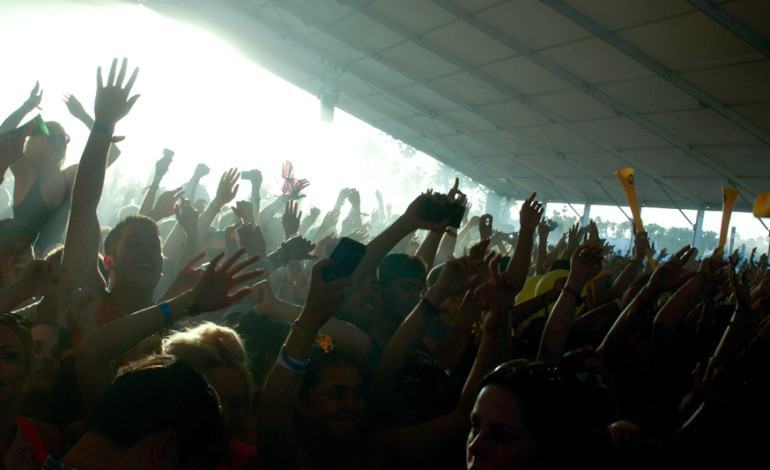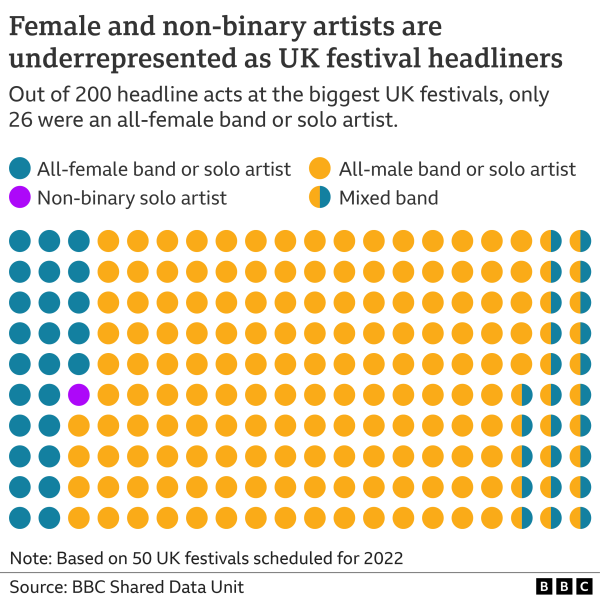
Despite substantial progress, conditioned inequality, founded on gender, race, disability, and ethnicity (all of which are deeply intersectional) perseveres globally, and is augmented by cultural challenges. Gender inequality, rooted in patriarchy, laws and social “norms” has fuelled the fundamental objectives for more inclusive and equitable work environments. There has been a growing need to improve diversity and representation within society today. In turn, reporting representation has become much more habitual, including within the music world.
A recent YouGov survey that focussed on 50 of the leading UK festivals, discovered that only one in ten of UK festival headliners in 2022 are going to be female. Out of 200 headline acts, the survey reported only 26 were female, one identified as non-binary, 24 had a collaborative male and female group, and the rest (149/200) were either an all-male band or a male solo artist.
Grammy award-nominated singer-songwriter and record producer, Maggie Rogers, known for her hits, ‘Give a Little’ and ‘Alaska’, spoke about the horrifying lack of female representation at festivals. and urged festival directors to be bolder in their choice of headliners. In an interview with the BBC discussing the matter she quoted, “What I come to music for, ultimately, as a fan and as an artist, is for community, to feel part of something, and I think community functions at its best when it feels inclusive and you want to see a version of your festival line ups that are as beautifully diverse as we are as a society.”
Rogers added, “The music industry has been largely run and dominated by male acts since the beginning of time and I can tell you – and I’m sure that every female act can tell you – a story of growing up and walking into a guitar shop and just having your dreams crushed. I think that we have made a lot of progress. I see so many young female producers who are coming up or people who are playing guitar or playing drums or just getting to be a part of the scene but it’s interesting in a post-me-too era because this imbalance is something we’ve had so much conversation about but still in the music industry three out of every one hundred people are women in the music industry which is just a horrifying number, and it gets even worse when you look behind the board at mixers or engineers or people who are producing music.”
The lack of equal gender representation has been consistent for decades. British singer Mahalia, called out Wireless Festival last year tweeting, “wireless back at it again with the penis fest”
wireless back at it again with the penis fest. Whew I’m tired pic.twitter.com/LVveysOmaL
— mahalia (@mahalia) April 27, 2021
However, not all festivals are maintaining male dominated lineups. ‘Strawberries & Creem’ festival which has been held in Cambridgeshire since 2014, confirmed that 60% of its artists performing this year are female or non-binary. Festivals like this one, present us wit some optimism for the future.

